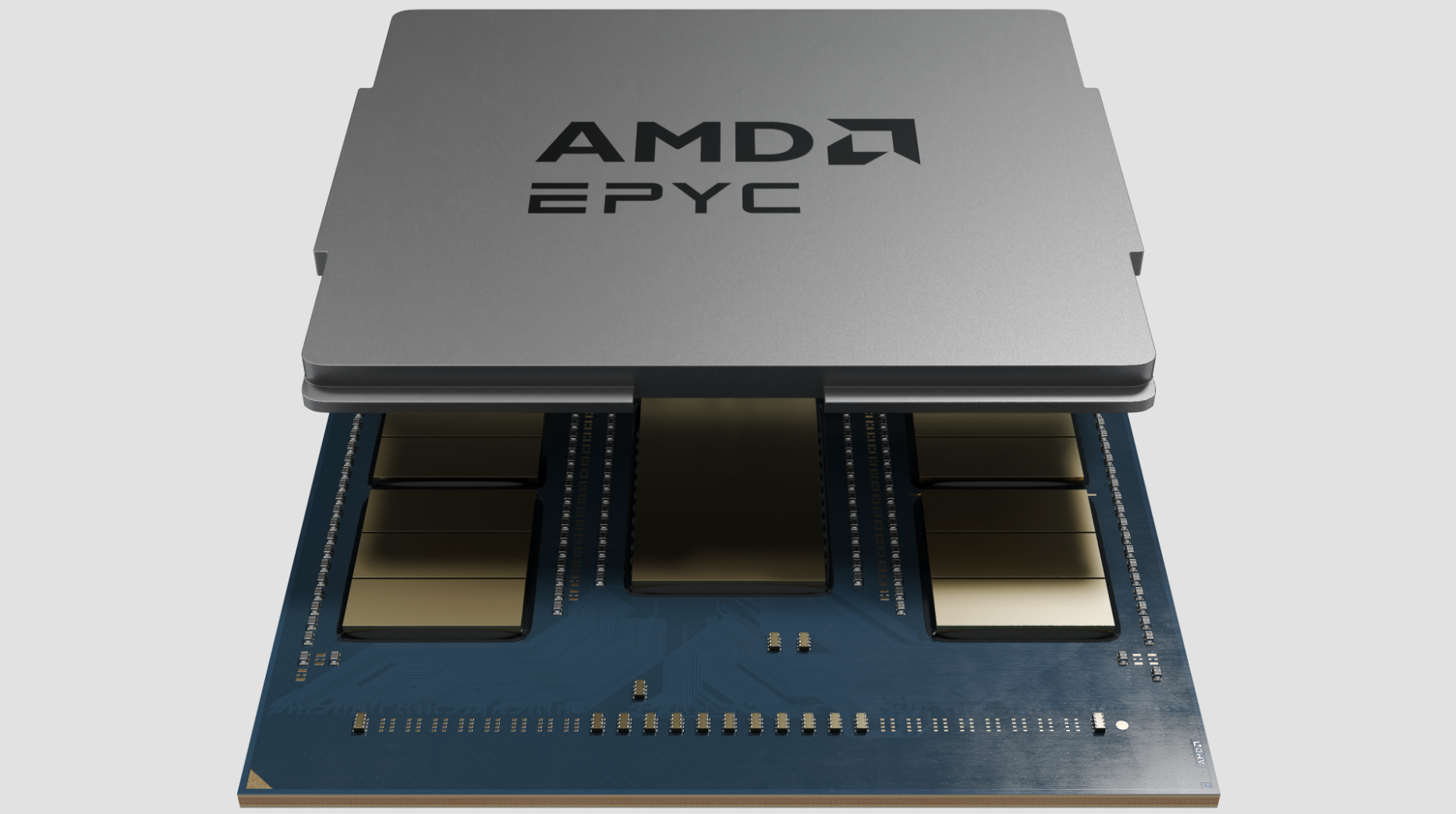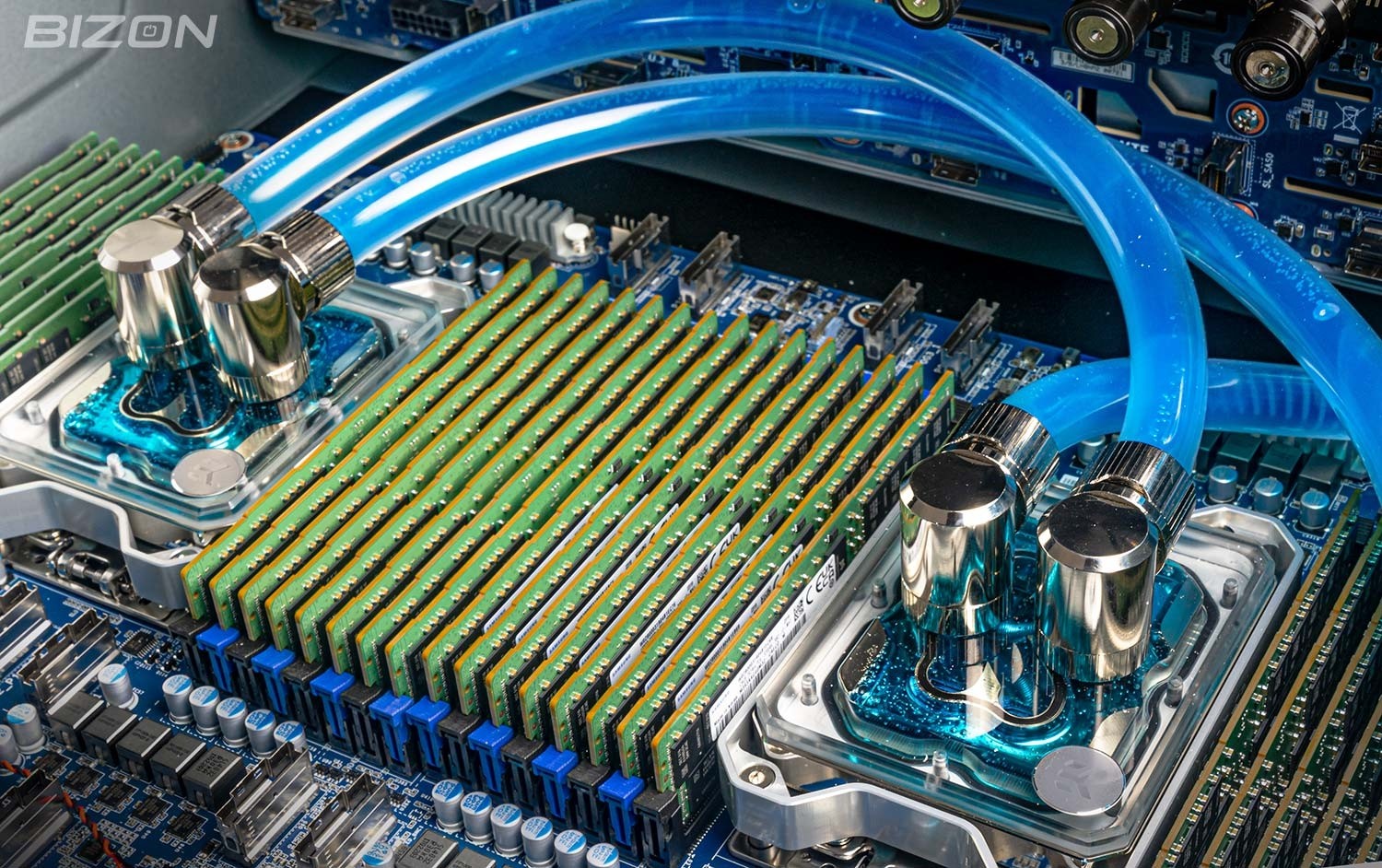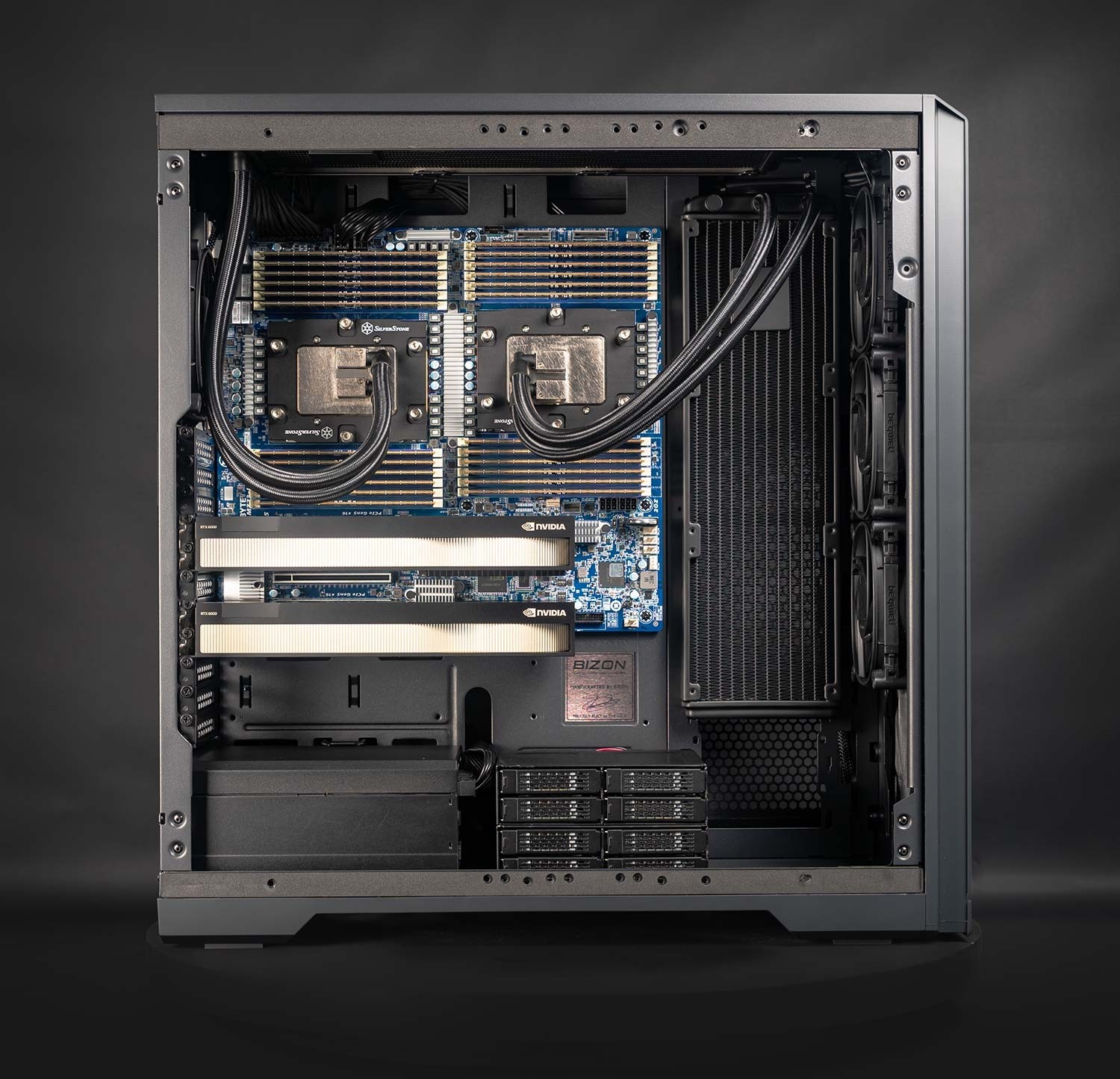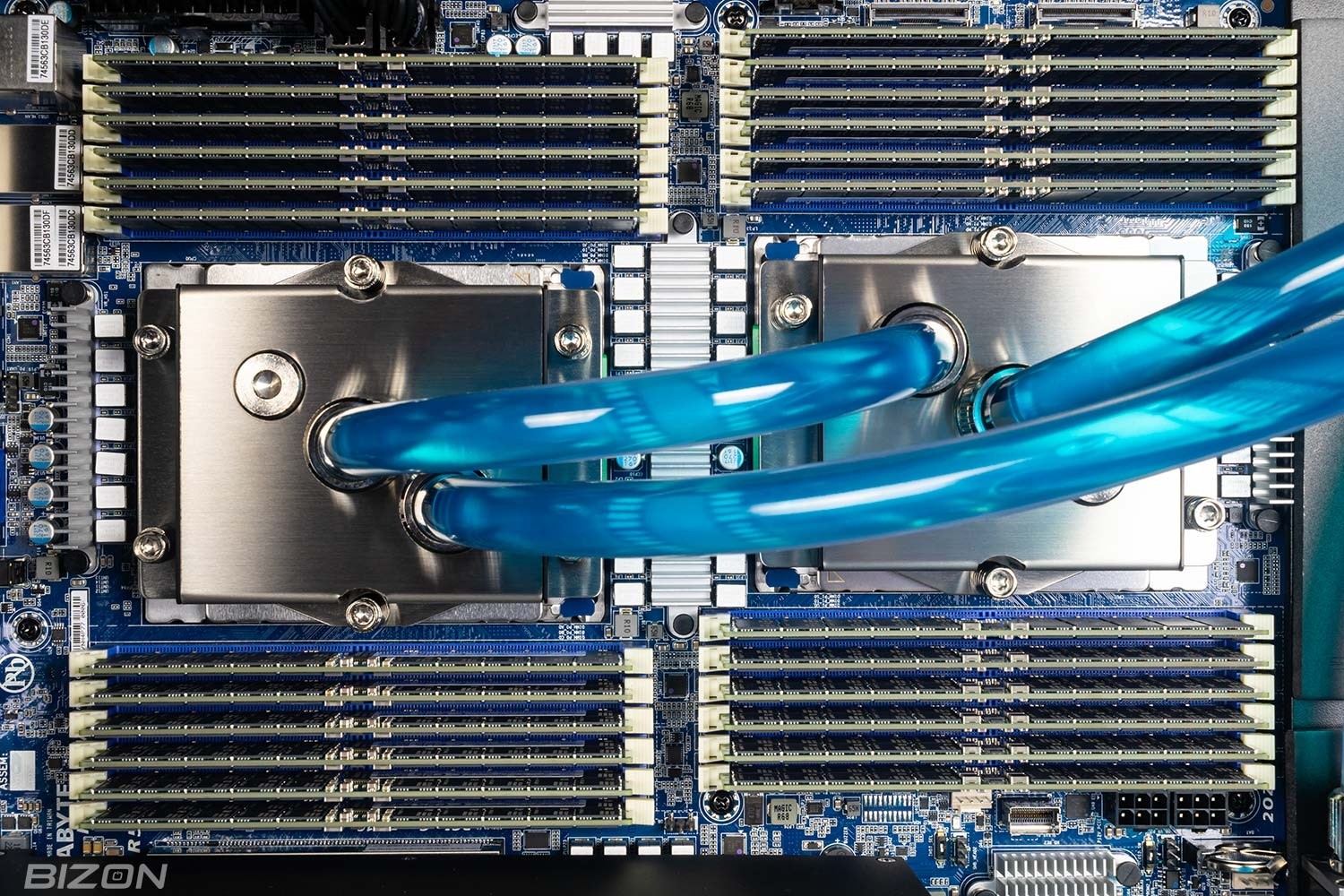Table of Contents
- Introduction
- Introduction to AMD Turin CPUs
- Increased Core Counts: A Boon for Multitasking and Parallel Processing
- AMD EPYC 9005 "Turin" processors in Bizon workstations:
- Advanced Power Efficiency: Reducing Heat and Energy Consumption
- Applications in Workstations:
- Enhanced AI and Machine Learning Capabilities: Pushing the Boundaries of Innovation
- Improved Multi-threading Performance: Optimal Use of Resources
- Expanded Memory Support and Bandwidth: Handling Larger Datasets with Ease
- Expanded memory support:
- Recommended workstations
- Conclusion: The Future of Workstations with AMD Turin CPUs
AMD announces EPYC 9005 "Turin" with 192 cores and 384 threads — Revolutionizing AI Workstations
Introduction
In the ever-evolving landscape of computer hardware, AMD has once again taken a significant leap forward with the announcement of their new AMD EPYC 9005 "Turin" CPUs. These processors, named after the famous Italian city, are set to redefine performance standards in the industry. This article delves into the cutting-edge features of the AMD Turin CPUs and explores how they can be leveraged in high-performance workstations to deliver unparalleled performance and efficiency. Finally, we will discuss what new workstation buyers can expect when these CPUs are integrated into upcoming Bizon workstations.

- Increased Core Counts
- Advanced Power Efficiency
- Enhanced AI and Machine Learning Capabilities
- Improved Multi-threading Performance
- Expanded Memory Support and Bandwidth
- CPU Architecture: Zen 5c
- Max CPU Cores: 192
- Memory Channels: 12 x DDR5
- PCIe Lanes: 128 x PCIe 5.0
- L3 Cache: To be announced
- Max TDP: 360W
- Socket: SP5
- Manufacturing Process: CCD: TSMC N3, IOD: TSMC N6
- Release Date: H2'2024
- 100-000000976-09: 12 CCD + 1 IOD (192 Zen 5C Cores / 384 Threads / 384 MB Cache / 500W)
- 100-000001152-05: 10 CCD + 1 IOD (160 Zen 5C Cores / 320 Threads / 320 MB Cache / 360W)
- 100-000001153-09: 8 CCD + 1 IOD (128 Zen 5C Cores / 256 Threads / 256 MB Cache)
- 100-000001249-XX: 2 CCD + 1 IOD (32 Zen 5C Cores / 64 Threads / 64 MB Cache)
- 100-000001538-03: 16 CCD + 1 IOD (128 Zen 5 Cores / 256 Threads / 512 MB Cache)
- 100-000001245-XX: 16 CCD + 1 IOD (128 Zen 5 Cores / 256 Threads / 512 MB Cache)
- 100-000001246-02: 12 CCD + 1 IOD (96 Zen 5 Cores / 192 Threads / 384 MB Cache)
- 100-000001341-XX: 12 CCD + 1 IOD (96 Zen 5 Cores / 192 Threads / 384 MB Cache)
- 100-000001247-12: 8 CCD + 1 IOD (64 Zen 5 Cores / 128 Threads / 256 MB Cache)
- 100-000001247-04: 8 CCD + 1 IOD (64 Zen 5 Cores / 128 Threads / TBD MB Cache)
- 100-000001342-XX: 8 CCD + 1 IOD (64 Zen 5 Cores / 128 Threads / 256 MB Cache)
- 100-000001538-03: 4 CCD + 1 IOD (32 Zen 5 Cores / 64 Threads / 128 MB Cache)
- 100-000001249-02: 2 CCD + 1 IOD (16 Zen 5 Cores / 32 Threads / 64 MB Cache)
Introduction to AMD Turin CPUs
AMD’s latest offering, the EPYC 9005 "Turin" series, represents a monumental shift in CPU technology. Built on an advanced architecture and leveraging the latest in semiconductor technology, these CPUs promise significant improvements in performance, efficiency, and versatility. Some of the standout features of the Turin CPUs include:
Each of these features brings its own set of benefits, particularly when utilized in high-performance workstations.
Increased Core Counts: A Boon for Multitasking and Parallel Processing
One of the most notable improvements in the Turin series is the increased core count. With configurations that can go up to 192 cores, these CPUs are designed to handle the most demanding tasks with ease.
AMD Turin CPU Models and Specifications
The following are some of the key specifications for the upcoming AMD Turin CPUs, specifically the EPYC 5th Gen (Turin, Z5c) model:
Future Releases with Detailed Specifications Pending
AMD EPYC 9005 "Turin" processors in Bizon workstations:
In high-performance workstations, the increased core count can significantly enhance multitasking and parallel processing capabilities. This is particularly beneficial for professionals in fields such as video editing, 3D rendering, and scientific simulations, where multiple processes need to run simultaneously without any lag. For instance, a video editor can run rendering tasks in the background while continuing to edit footage, thereby improving productivity and workflow efficiency.
Advanced Power Efficiency: Reducing Heat and Energy Consumption
The AMD Turin CPUs are built with a focus on power efficiency. Utilizing the latest in semiconductor technology, these processors consume less power while delivering higher performance, resulting in reduced heat generation.

Applications in Workstations:
For workstations, advanced power efficiency translates to quieter and cooler systems. This is particularly advantageous in environments where multiple workstations operate simultaneously, as it reduces the need for extensive cooling solutions and decreases overall energy consumption. Additionally, lower heat output can prolong the lifespan of the components, ensuring that the workstations remain reliable over extended periods of heavy use.
Incorporating these CPUs into workstations can drastically improve the performance of AI-driven applications. For instance, data scientists and AI researchers can benefit from faster model training times and more efficient data processing. This can lead to quicker insights and the ability to handle larger datasets, pushing the boundaries of what is possible in AI and machine learning.
This means that applications that rely heavily on multi-threading, such as CAD software, complex simulations, and financial modeling, will see a marked improvement in performance. Professionals using these applications can expect smoother operation, quicker computation times, and the ability to handle more complex tasks without the risk of bottlenecks.

Enhanced AI and Machine Learning Capabilities: Pushing the Boundaries of Innovation
With the Turin series, AMD has placed a strong emphasis on AI and machine learning capabilities. These CPUs come equipped with dedicated AI accelerators and enhanced support for machine learning frameworks, making them ideal for complex computational tasks.
Improved Multi-threading Performance: Optimal Use of Resources
The improved multi-threading performance in the AMD Turin CPUs allows for better utilization of CPU resources, enabling more efficient task management and execution.
Expanded Memory Support and Bandwidth: Handling Larger Datasets with Ease
Another significant advancement in the Turin series is the expanded memory support and increased bandwidth. This allows for better handling of large datasets and more efficient data transfer between the CPU and memory.

Expanded memory support:
In workstations, expanded memory support is crucial for applications that require substantial memory resources, such as large-scale simulations, database management, and big data analytics. With the Turin CPUs, users can load and process larger datasets more quickly, reducing wait times and improving overall efficiency. This capability is particularly beneficial for industries that rely on real-time data analysis and processing.
Recommended workstations
Conclusion: The Future of Workstations with AMD Turin CPUs
The integration of AMD’s new Turin CPUs into high-performance workstations promises to bring a host of benefits that will enhance performance, efficiency, and versatility. With increased core counts, advanced power efficiency, enhanced AI and machine learning capabilities, improved multi-threading performance, and expanded memory support, these CPUs are set to revolutionize the capabilities of workstations.
For new workstation buyers, the future looks promising. The upcoming workstations equipped with AMD EPYC 9005 Turin CPUs will be able to handle more demanding tasks, offer better multitasking capabilities, and provide a cooler and quieter working environment. Whether you are a video editor, AI researcher, data scientist, or any professional requiring high-performance computing, the new workstations with AMD Turin CPUs will meet and exceed your expectations, providing a robust platform for your most demanding projects.
Bizon Workstations, known for their top-of-the-line systems tailored for creative professionals, scientists, and engineers, will be among the first to integrate these powerful CPUs into their product lineup. The Bizon X6000 G2, ZX6000, and ZX9000 models, in particular, will see a significant performance boost with the AMD EPYC Turin CPUs. The inclusion of these CPUs means that users can expect unparalleled processing power, energy efficiency, and the ability to handle the most complex workloads with ease. The future of high-performance computing is here, and it's powered by AMD Turin CPUs.